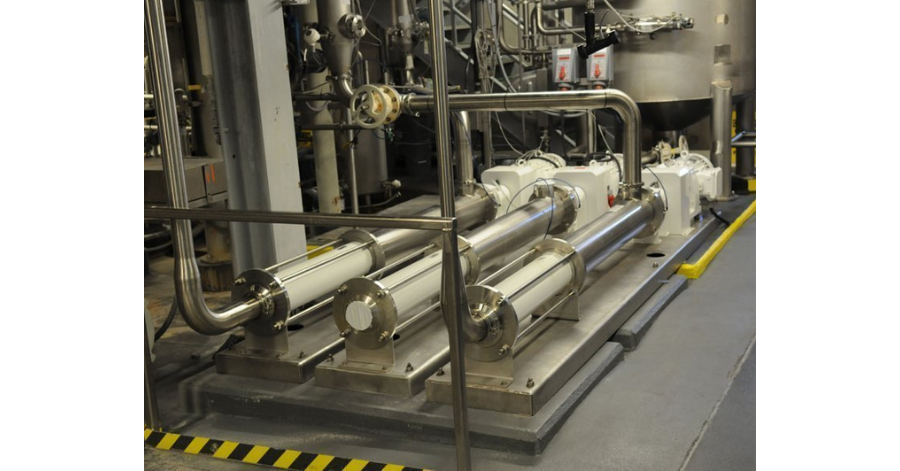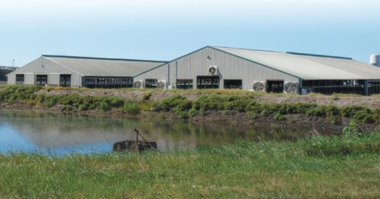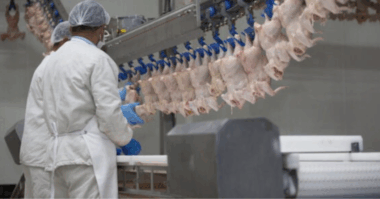For a major U.S. producer of dairy products, NETZSCH has provided NEMO® progressing cavity pumps for the difficult job of transferring sweetened condensed milk out of flash coolers – and as a result, solved a 25-year long pumping problem for the customer.
At a major Wisconsin-based dairy products company that is the largest producer of sweetened condensed milk in the nation, there is a difficult application in the production of sweetened condensed milk product that has created decades of pumping issues for the plant owners. Near the end of the manufacturing process, the mixture of milk and sugar – the primary components of sweetened condensed milk – needs to be pumped out of two flash coolers. The specifics of the application include:
- Pumping the mixture of milk and sugar ranging from 1500 to 5000 CP.
- Pumping 40 GPM, pulling from two vessels under vacuum (24” and 28”).
- The need to maintain 150 PSI with operational temperatures of 70 to 120°F.
- CIP at 50 GPM pulling from the vessels 2 to 26” vacuum at 20 PSI using a caustic of 6 percent and nitric acid of 3 percent.
A 25-Year Long Pumping Problem
One of the company owners recalled the long and difficult history of trying to find suitable pumps for this application.
“When we commissioned the evaporator 25 years ago, we had rotary lobe pumps in this pumping application. The metal-metal surfaces wore rapidly. We then switched to sinusoidal pumps. We tried many different elastomers, but never got good pump life. We spent a great deal on parts and because the pumps could not CIP, we had to hand wash the seals.
We then switched to progressive cavity pumps. We got good stator life, but had the same problem with metal-to-metal U-joint wear. We would lose about 1/2” of metal in four months, necessitating the replacement of the rotor, U-joint, pins, and plug-in-shaft.
Then, moving on to a different type of progressive cavity pumps we struggled with various failure modes of the booted sleeve over the U-joint. And once that fails, the joint quickly fails.
Up until the point that we introduced the NETZSCH progressing cavity pumps, we’ve probably spent $500,000 dealing with this pump application – which included losing entire batches of sweetened condensed milk.”
Flexible Shaft Pump Results in Application Success
In 2014, the company contacted NETZSCH to find a solution to this long-running production problem. NETZSCH engineers recommend using the NEMO® progressing cavity pump with a flexible shaft. Because the NETZSCH patented flexible rod design is free from crevices and dead spaces, it is often used in the production of foodstuffs, pharmaceutical, cosmetic, and chemical/biochemical applications.
The NETZSCH flexible rod design eliminates the need for double universal joints or gear joints – both of which require complicated arrangements of often small, multiple components with close tolerances, which require lubrication.
With no components that move against each other, the flexible rod eliminates the need for lubrication and protection against mechanical damage or corrosion. With no wear and lubrication required, there is no risk of product contamination. This is especially relevant
in process industries, where continuous and batch production demands pumping equipment with high levels of reliability.
The NETZSCH flexible rod is made from special steel and is designed for 10 million load changes. It has the inherent strength to transmit the required drive while still having the flexibility to withstand the eccentric motion of the rotor. Another advantage of the material is that it is resistant to most chemical compounds.
A 25-Year Pumping Problem Solved
The customer received two NETZSCH NEMO® pumps and put them in service in early June 2014. A third pump was ordered at the end of June 2014 as a spare to be placed between the two operating pumps. To date, the two progressing cavity pumps have been running 24 hours a day seven days a week with no maintenance or performance issues. After several months of service, one pump was taken apart to inspect for stator or other wear – but none was found.
According to Bill Cruey, the NETZSCH representative on this account, “With the tremendous reduction in pump downtime, the customer is saving a great deal of time, personnel resources and money. With the success of the NETZSCH NEMO® progressing cavity pump in the sweetened milk application, the customer is currently looking at using NETZSCH pumps in several other locations in their plant for existing and future operations.”




